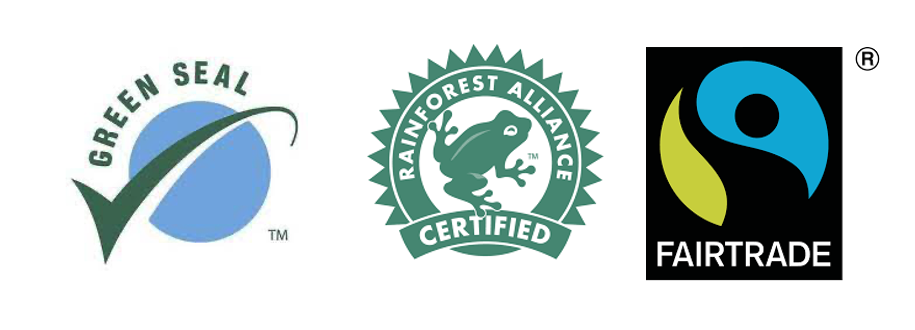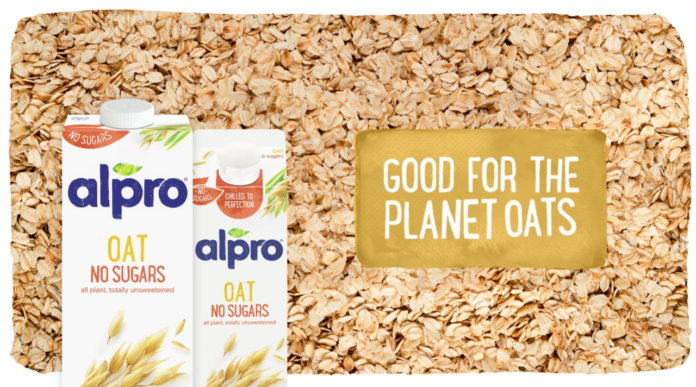The term “Greenwashing” has come to encompass anything a business says or does which portrays their product or services as more eco-friendly than they are in reality.

Photo by Brian Yurasits on Unsplash

This may seem fairly innocuous on the face of it. Indeed, it may even be tempting for you to take advantage of the burgeoning green economy with the odd white-lie or creative flourish that talks up your progress. However, caution must be advised as unsubstantiated green-claims can result in serious damage to your brand (1).
Consumers are increasingly clued up about sustainability, and all eco-claims can easily be examined under an uforgiving microscope in the arena of Social Media. Grand assertions can very easily be exposed as cyclical PR fluff, resulting in boycott movements such as those that have hit industry giants such as BP and H&M for not fully living up to their claims (2)(3).
Not only is this damaging for the bottom line, but once a company’s brand becomes associated with misleading consumers their brand could be permanently tarnished – as fashion brand Everlane recently discovered when their poor treatment of ethnic minority employees was exposed, and sales consequently slumped (4). Brands can even fall foul of the law and be disciplined by regulatory authorities should their claims not stack up (5)(6).
The risks are enough to make any Managing Director or CEO think twice about championing their eco-credentials for fear of alienating consumers: a phenomenon known as ‘green hush’ (7).
But it doesn’t have to be this way. Indeed, sustainability successes should be celebrated and shared with the world to encourage and inspire others. The question is, how should companies report their sustainability successes to the world? And what can shore you up against accusations of greenwashing and all the damage that can bring?
All it takes is four simple steps:
1. BE OPEN AND HONEST
Consumers are increasingly conscientious and aware of the challenges of sustainability. They, as well as you, are on their own sustainability journeys and know that no one brand has all the answers. Consider the whole lifecycle of your product, from cradle to grave, and be honest with where you need to improve. A holistic approach will earn consumers’ respect and involve them in your brand’s journey like never before (8).
2. BACK UP YOUR CLAIMS
By all means craft a headline-grabbing target, but be prepared to back up everything you say with substantiated facts and figures. Avoid vague terms like ‘eco’ and ‘environmentally friendly’, and ensure your data is current, set against an agreed scientific standard and clear. If you can prove it, you should rightly be able to shout about it (9).
3. GET CERTIFIED
If you can, get a certification from an industry body (Fair Trade, Green Seal, Rainforest Alliance are some good ones). This can help set consumers’ minds at ease and shore your company up against any negative press (10).

4. REPORT, REPORT, REPORT
Consistent, accurate reporting with substantiated§ facts demonstrates that you are serious, committed and knowledgeable about your impact and your journey towards sustainability. Reports can also be a way of you keeping your stakeholders involved with your progress. The Value Reporting Foundation offers more tools and support on how to report your progress.
Further to this, External Assurance can be sought to “increase confidence in the quality of their sustainability content, data and processes portrayed in a report” (11). Organisations exist which can help with this, but they should be ISAE or AA1000 accredited.
While Greenwashing can justly result in damage to your brand, real successes can and should be celebrated. Bring your customers on the journey with you and you should have no problem avoiding any negative press.
For further advice on enforcement and regulation of environmental claims in the UK you can contact Trading Standards Institute, the Advertising Standards Authority or the Committee of Advertising Practice. Different regulatory bodies exist in each country, so it is advised that you check the regulations where you operate.
References and further reading
- Chandler-White, H 2019, The “Green Pound”: How Being Eco-Friendly Became Chic, The Telegraph, August 2019, https://www.telegraph.co.uk/women/life/green-pound-eco-friendly-became-chic/.
- Finch, J 2020, What Exactly Is Greenwashing In Fashion and How Can I Spot It?, Refinery 29, 25 June 2020, https://www.refinery29.com/en-gb/what-is-greenwashing-fashion
- What is greenwashing?, Ethical consumer, 19 February 2020,
https://www.ethicalconsumer.org/transport-travel/what-greenwashing - Testa, J 2020, Everlane’s Promise of ‘Radical Transparency’ Unravels, The New York Times, 26 July 2020, https://www.nytimes.com/2020/07/26/fashion/everlane-employees-ethical-clothing.html.
- Green’ claims: CMA sets out the dos and don’ts for businesses, Gov.UK, 21 May 2021
https://www.gov.uk/government/news/green-claims-cma-sets-out-the-dos-and-don-ts-for-businesses - Isabelle Rahman et al., Greenwashing – When making green claims can get businesses into
Trouble, ReedSmith, 17 June 2021,
https://www.reedsmith.com/en/perspectives/2021/06/greenwashing-when-making-green-claims-can-get-businesses-into-trouble - David Colgan, Green hush: Campaigns against sustainable businesses cause them to go silent, study finds, Alliance for Research on Corporate Sustainability, 10 June 2018,
https://corporate-sustainability.org/green-hush-campaigns-against-sustainable-businesses-cause-them-to-go-silent-study-finds/ - Peattie, K & F Martin Belz, F 2010: Sustainability Marketing: An Innovative Conception of Marketing, Marketing Review St Gallen, October 2010,
https://www.researchgate.net/publication/225723866_Sustainability_marketing_-_An_innovative_conception_of_marketing - Guidance. Make an environmental claim for your product, service or organisation, Gov.UK, 21 December 2016, https://www.gov.uk/government/publications/make-a-green-claim/make-an-environmental-claim-for-your-product-service-or-organisation
- 11 Ways to Avoid Greenwashed Products, Clean Up News, 2 February 2021,
https://www.cleanupnews.org/home/how-to-avoid-greenwashing - External Assurance of Sustainability Reports: Investing on Transparency, Sustainability Knowledge Group, 10 May 2019, https://sustainabilityknowledgegroup.com/external-assurance-of-sustainability-reports-investing-on-transparency/



